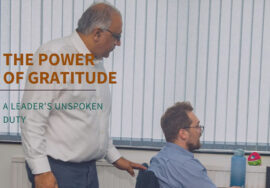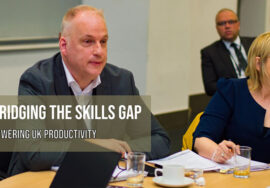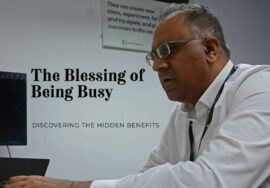
Co‑Founding Startups the Right Way: Building Partnerships That Last – and Navigating When They Don’t
Co‑Founding Startups the Right Way: Building Partnerships That Last – and Navigating When They Don’t.

In over two decades of working within health & social care, skills, employability, events, Tech and social mobility across the West and East Midlands, I’ve watched the same pattern repeat: great ideas emerge, funding is secured, stakeholders rally – and then the founding team cracks. Why? Not because of a lack of market opportunity – but because the partnership underpinning the venture wasn’t built to scale, structured to govern or prepared to resolve conflict.
Drawing on lessons from book that I would recommend which is: Cofounding The Right Way by Jana Nevrlka and the latest data from Carta’s Founder Ownership Report (see source: https://carta.com/data/founder‑ownership-full-report/).
Insights on co‑founder break‑ups (“23 % now leave within 3 years”) this article has been curated together as a guide and roadmap for choosing, structuring and sustaining the right co‑founding team – especially for startups, scaleups and Management Buy Outs.
Purpose, Partnership & Fit
Co‑founding is not a convenience. It’s a commitment. If your mission is centred on skills, employability, diversity and social mobility in Birmingham & the West Midlands, then the person you partner with must share that mission – not just your ambition.
Before you ask “Who should I partner with?”, begin with “Why do I need a partner?” If you can execute solo and retain control, fine. But if your ambition outpaces your capacity – you need a co‑founder.
The Carta data reveals that solo‑founder ventures now account for 35 % of startups incorporated in 2024, more than double the figure a decade ago. Yet only 17 % of the new VC‑backed companies that year were solo‑founded. Translation: going solo is common – but raising meaningful capital or scaling often favours teams. If you opt for a partner, treat the decision with the same rigour as a funding round.
Roles, Equity & Founding Team Structure
A major tension point in early ventures is equity. Who owns what? Who makes decisions? Who carries risk? The research from Carta paints a clear picture:
• Among two‑founder teams, an equal 50/50 split is increasingly common: 45.9 % in 2024, up from 31.5 % in 2015.
• For founding teams across all sizes, equity gradually erodes: from a median collective founder ownership of 56.2 % after Seed, to 36.1 % at Series A, and ~23 % at Series B.
In your world – bid writing, social enterprise, regional growth – while you may not follow the same VC‑path exactly, the principle holds: ownership isn’t simply division; it is design.
If you bring domain expertise, network and capital – and your partner brings operations, sales, talent – the split must reflect that. Document it. In the social value sector, credibility and delivery matter just as much as financial input.
Trial the Partnership – “Date Before You Marry”
Structure a pilot collaboration: a small joint tender, a skills‑mapping initiative, a short‑term project. Use this as a lab to test:
• Decision making under pressure
• Conflict emergence and resolution
• Role clarity and accountability
Avoid locking in full equity, titles and legal commitments before you’ve tested the partnership in action. As the SaaStr article reminds us, only ~23 % of co‑founder teams are seeing one partner leave within the first three years. If you don’t test, you risk being one of that ~23 %.
Governance, Documentation & Dispute Mechanisms
Having agreed on mission, roles and equity, your next discipline is governance. Disputes aren’t a sign you got it wrong – but lack of process is.
Essential elements:
• A co‑founder agreement (roles, decision rights, vesting, buy‑back, exit triggers)
• A neutral third voice (advisor, NED, chair) for escalation
• Quarterly “relationship reviews” (not just KPIs but communication, values, alignment)
• Conflict protocols (how disagreements escalate, how mediation is triggered)
Carta’s guidance on founder shares emphasises the importance of formalising the agreements early rather than leaving terms implicit. In high‑stakes tender and social enterprise work, this clarity builds trust for commissioners, funders and partners.
Conflict Is Inevitable – The Strategy is Prevention & Response
From my experience leading bids and boards and coaching executives, I’ve learned this: the best partnerships anticipate disagreement and build contingency into the system, not pretend it won’t happen.
Consider the findings from SaaStr:
• ~23 % of co‑founder teams see a founder leave in first 3 years
• ~30 % by year 5
• ~35 %+ by year 7
In sectors like ours – where mission, public‑sector accountability, social value and funding cycles add complexity – the stakes are higher. So:
• At the first sign of tension, bring it into the open.
• Use structured mediation – framing the conflict not as personal attack, but as governance issue.
• Document the resolution and update the governance framework accordingly.
Ownership, Dilution & Power Dynamics: The Silent Conflict Engine
Dig deeper and you’ll see that much dispute originates not in disagreements over vision, but power and ownership. Cards laid out:
• As a founder team raises capital, their ownership shrinks. At Series A many teams hold ~36 % collectively.
• If one partner holds significantly more equity, their decision rights may outweigh their actual contribution – creating a fault line.
• In social enterprise or regional growth collaborations, the partner who brought the network may feel undervalued if operations dominate; likewise the operator may feel under‑owned if networks dominate.
I suggest you must therefore:
• Set clear expectations on dilution, future equity allocations and value recognition.
• Map how roles will evolve (for example, one founder moving from hands‑on to non‑executive).
• Establish how equity will adjust if contributions shift (e.g., performance, milestone based, time commitment).
Without this, you open yourself to the most pernicious kind of dispute: someone feeling “I’m doing far more than my share for far less stake” – and that breeds resentment faster than any product pivot or market hiccup.
The Take‑Away for Entrepreneurs & Leaders
-
Co‑founding is not accidental – it is strategic.
• Begin with mission‑fit, not just business‑fit.
• Define roles, equity and decision‑rights before you go all‑in.
• Run a trial collaboration.
• Build governance, documentation and conflict protocols from day one.
• Treat disputes as business issues – not emotional ones.
• Recognise ownership and power dynamics early: design them so they work, not so they become the work.
• In any enterprise clarity is credibility – both with your partner and your ecosystem.If you’re a founder or board member in the fields of recruitment, skills, health & social care, tech and social housing – looking at partnerships, co‑founder structure or dispute resolution – reach out. I specialise in aligning governance with strategy, resolving co‑founder conflicts, and enabling mission‑driven growth that sticks.
Because you didn’t build your idea to falter at the first friction. You built it to make a difference – and to scale. Make sure your partnerships are designed that way too.
By Safaraz Ali
Founder, CEO · Chair · Business Mentor · Business Investor · Social Entrepreneur










